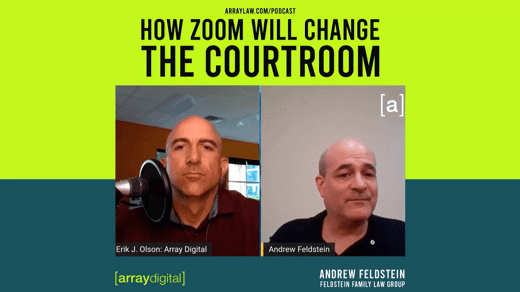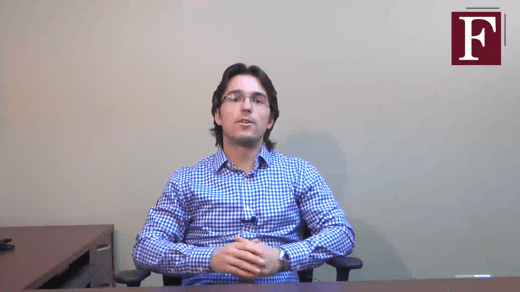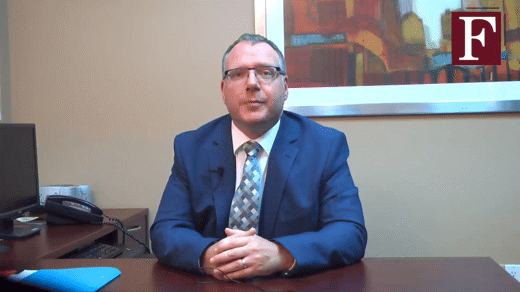Hello, I am Jeffrey Hart with the Feldstein Family Law Group.
Today I would like to talk to you about the Case Management System. The various steps in a court matter is dealt with in more detail in other blogs on our website, and I encourage you watch them, but today is more of an overview to whet your appetite for this subject.
Whenever you go to court, you need to understand that you are slowly marching towards a final resolution in the form of a trial. All the rumours you have heard about trials are true: they can be stressful, time consuming, costly, and adversarial. So how can we make this process a little less stressful, time consuming, costly and adversarial? Why, the Case Management System of course! In Ontario, the powers that be decided that we needed a way to help reduce conflict between the parties in a family law matter, to reduce wait times for court, and help parties avoid the stress and cost of trial, and the Case Management System was born!
Let me break it down for you: Case Management is a system that requires parties to attend court for Conferences prior to a trial. The theory is that these Conferences, where discussion is preferred over argument, will help bridge the gap between the parties, and only the insurmountable gaps will then need a trial to reach a final resolution.
There are three types of Conferences.
Case Conference
This is often the first court date. At Case Conferences, you will discuss the issues in dispute, and a judge will give you some recommendations regarding potential settlement and how to address procedural issues. Procedural issues include such things as ensuring that the parties exchange disclosure in a reasonable time so that support and property issues can be resolved. The presumption is that when the parties discuss their issues with a judge who is available to offer recommendations and solutions to those issues, then perhaps they can settle everything on that date or shortly thereafter. When the parties do not settle, then we move to the next Conference.
Settlement Conference
The second type of Conference is called a Settlement Conference. By the time the parties attend a Settlement Conference, the parties should be prepared to settle many, if not all, of the outstanding issues. This requires that complete disclosure has been exchanged on the relevant issues, that there has been questioning if the parties felt that was necessary to get to the bottom of a factual dispute, and there may or may not have been temporary orders made on some substantive issues such as access or support. The parties and counsel are expected to have made some overtures to each other to try to settle their matter before the Settlement Conference, and they are now returning to court to seek the assistance of a judge to help them find some middle ground on what they still disagree. During Settlement Conferences, judges advise the parties how they would resolve the issues if they were the trial judge. The theory is that once the parties have an idea of how a judge would decide their matter, they then will be more reasonable regarding their settlement positions. Many matters will settle at this stage, but if they do not, we have really only reached the half-way point.
Trial Management Conference
The third type of Conference is called a Trial Management Conference. At a Trial Management Conference, the judge is focused on preparation for trial, by asking about witness lists, time lines, and opening statements. The judge wants to be sure a matter is ready for trial before adding the matter to a trial list. As with all Conferences, a Trial Management Conference is also a time for the parties to discuss settlement before going to trial.
At each Conference, judges can make procedural orders and orders upon which the parties agree. The Conference judge is not able to make any other types of orders unless notice has been given for same. The same judge will usually hear all conferences in a matter, and she or he is called the Case Management judge. Having the same judge at each Conference ensures the parties have the continuity and efficiency of dealing with only one judge, and so that the judge can gain a familiarity with the parties and the issues.
The Case Management System focuses more on discussion than argument. It makes the parties identify their issues; state their respective positions on the issues, discuss what documents they need from each other to help them turn their theories into fact, and most importantly, promotes settlement. Without it, we would all be arguing before we really knew what we were arguing about. When we take the time to actually discuss things, we will often find that what we are arguing about is not worth the effort.
I’m Jeffrey Hart. Thank you for watching today. If you need more information and wish to schedule a free initial consultation, please visit our website at www.separation.ca or contact our office at 905-581-7222.



